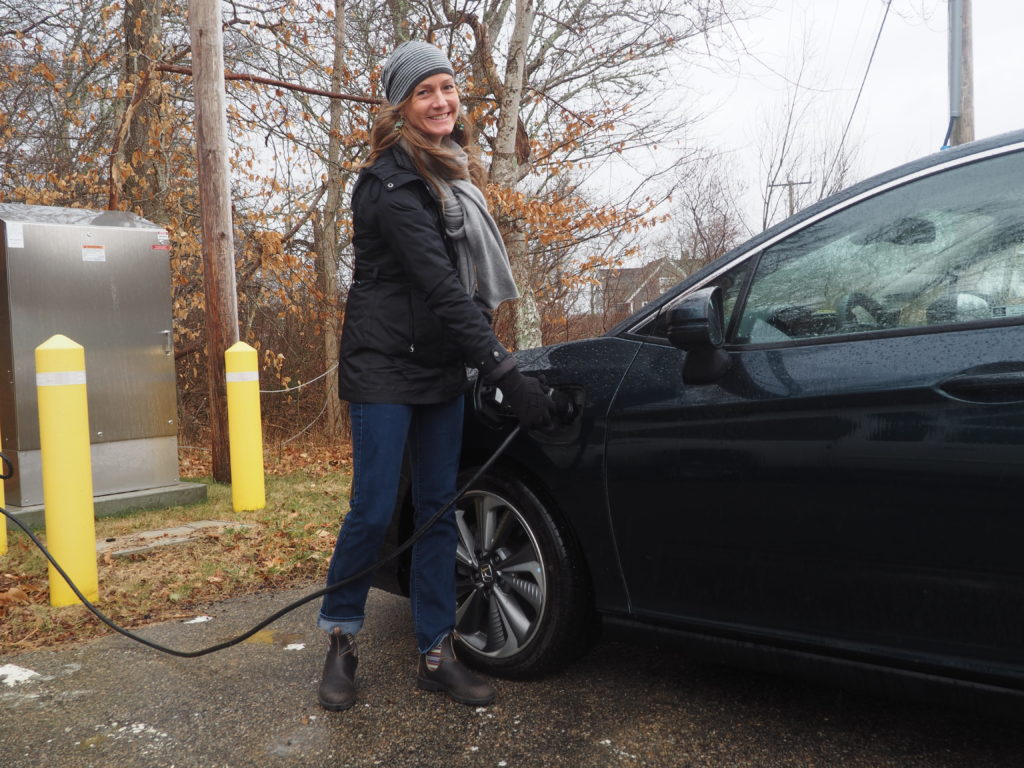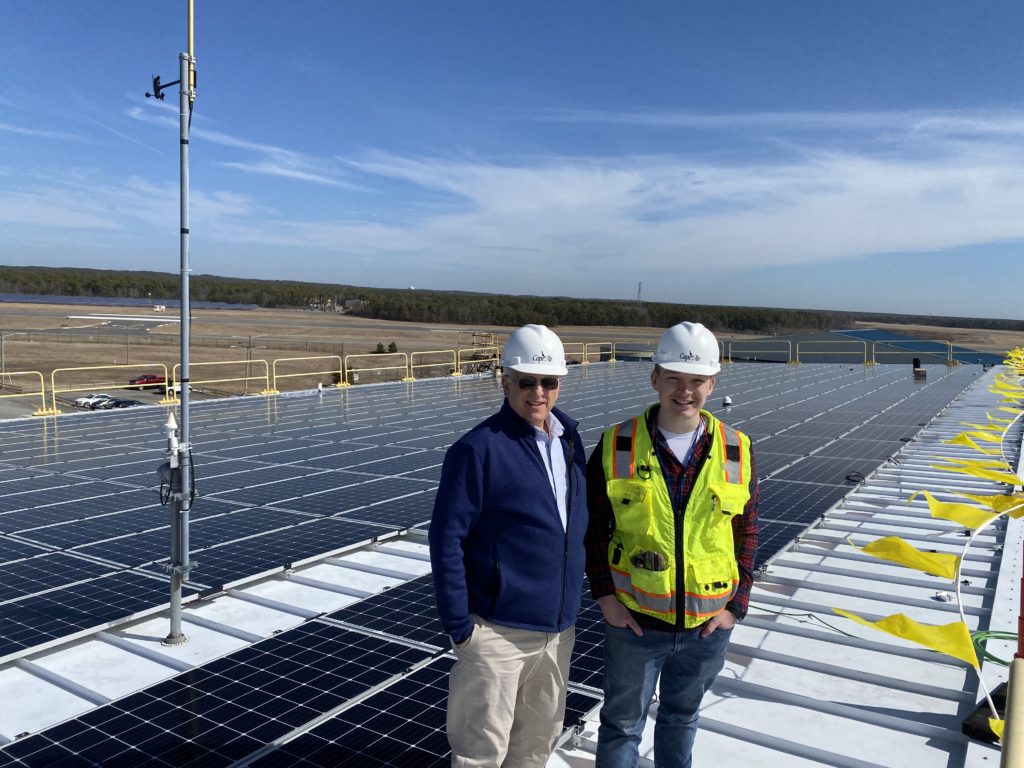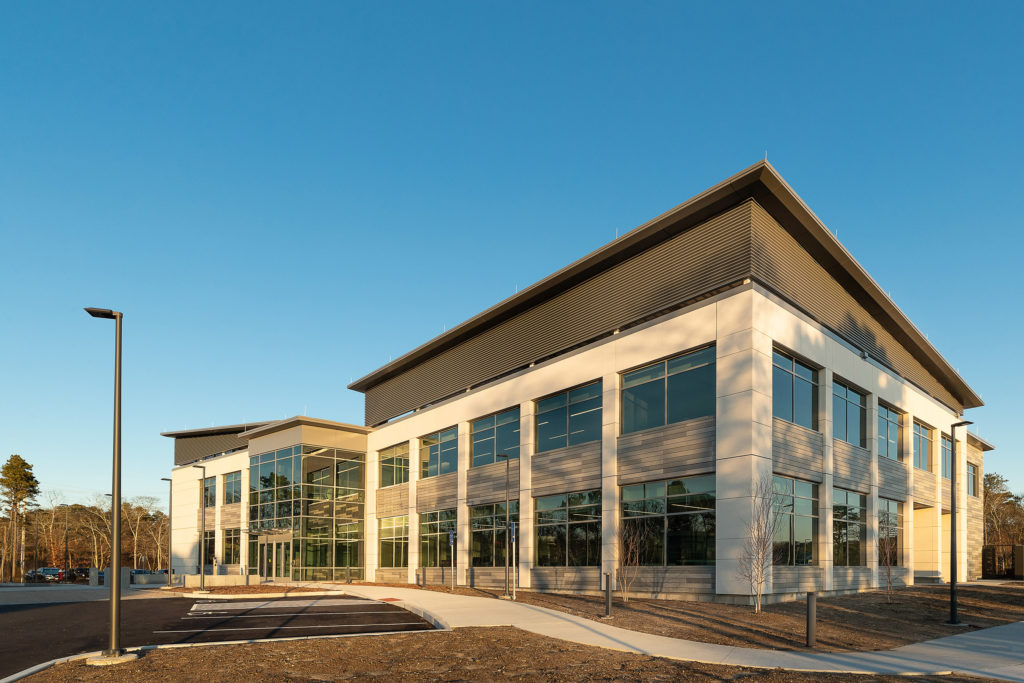Wildfires rage in America’s West.
Oceans are warming. Glaciers are melting.
Coastal erosion is increasing.
Wildlife habitats are disappearing.
Climate change is happening. Everywhere. Our human imprint via building, deforestation and carbon emissions from fossil fuels are wreaking havoc on the Earth and its atmosphere. Climate change activists say all sectors of the economy can play a larger role in helping to heal the planet, without a dramatic impact on business.
The Cape Cod Climate Change Collaborative, formed in 2016, is a coalition of organizations, businesses and citizens committed to mitigating the climate crisis in the Cape and Islands region. The collaborative’s third annual Net Zero Roundtable Conference on Oct. 23 this year has a goal of educating business owners, employees and the general public on how everyone can be engaged in slowing climate change. The first virtual Net Zero conference aims to educate and inspire by showcasing economic programs, clean energy impacts, jobs, training and entrepreneurial opportunities for growth and activism that the collaborative hopes will help kickstart a robust, just and equitable economic recovery while moving the region toward a carbon-free future. A host of breakout sessions will follow the keynote address by Mindy Lubber, CEO and president of the sustainability nonprofit organization Ceres, Inc.. This conference is offered free to participants thanks to the generosity of several sponsors and patrons.
What exactly is net zero? “Net zero” refers to achieving an overall balance between emissions produced and emissions taken out of the atmosphere (greenbiz.org). In order to keep the rise in global mean temperatures well below 2 degrees Celsius above pre-industrial levels and to try to limit global warming to 1.5 C, the Paris Agreement commits to net-zero emissions globally in the second half of this century.
This year, climate change has taken a back seat to the COVID-19 health crisis, which has severely impacted the economy.
“This year’s NetZero conference recognizes the ‘suffering’ many people are going through, locally, regionally, nationally and globally, due to the pandemic,” says NetZero organizer Fran Schofield. “We wanted to make sure we were not tone deaf to the job losses and food and home insecurity. We’re emphasizing the opportunities, the tools available and the new jobs and industries that will be available.”
The past two conferences have been indoor events, limited by the size of the venue and smaller in scope. The 2020 conference theme, “Jumpstarting a Clean, Green & Inclusive Economy for Cape Cod & the Islands, couldn’t be more apropos for a year in which businesses have struggled to survive during the pandemic amid months of closures and restrictions that have impacted business as usual. The conference intends to capture the economic programs, clean energy impacts, jobs and training, and opportunities for growth and activism that will help kickstart a robust, just and equitable economic recovery while moving the region toward a carbon-free future.
The virtual NetZero 2020 has an advantage of being able to reach a greater audience, says Schofield.
“The plus side for this is it allowed the collaborative to secure a greater number of presenters from outside New England,” she says. “Secondly, it’s allowed us to open up to a much broader audience. Previously, the conference was limited in attendance via the venue and budget. Third, for the first time we’re focusing on the business community and engaging organizations and private sector groups who may not be aware of the collaborative.”
The collaborative board now includes representatives from the business community, chamber of commerce, the building industry and even faith organizations, among other sectors.
“It’s exciting to see all the facets of our community joining the collaborative, just when we are starting to rebuild the economy,” says Rich Delaney, president of the collaborative board of directors and executive director of Center for Coastal Studies in Provincetown, one of the founding organizations. “The public sentiment about climate change has changed significantly in the last two decades… people are more conscious of what they are buying, what it’s made from, where our food comes from, for example.”
The Environmental Protection Agency’s ENERGY STAR® estimates that small businesses spend more than $60 billion on energy annually.
Making Changes
Reducing a business’s carbon footprint, Delaney notes, doesn’t have to be expensive and changes can be small. He offers five tips: conserve energy (by signing up for an energy audit or check into Cape Light Compact’s energy saving programs); think about your carbon footprint and buy local whenever possible; consider renewable energy — there are low interest loans, tax incentives and the payback is quick; and engage your employees by offering energy-saving incentives Cape Light Compact for example, offers incentives on high-efficiency equipment, including commercial kitchen equipment (ovens, dishwashers, refrigerators, freezers, and more) which can lower associated energy expenses by up to 75 percent. The Compact also has a range of incentives for businesses interested in exploring more energy efficient HVAC equipment, such as heat pumps.
The Compact offers many resources for businesses on its website, including energy saving tips and free energy assessments.
It’s not always easy for the Cape and Islands’ primarily small business community to implement sustainable changes.
“What happens on a statewide level in the energy efficiency environment isn’t always transferable to the Cape Light compact customers,” explains Maggie Downey, executive director of Cape Light Compact and a board member of the collaborative. “The Compact relies on studies to help define dollar benefits (incentives) associated with upgrades, and a lot of research has been done for homes and large businesses, but not so much on microbusinesses, which the Cape and Vineyard are made up of.”
As part of its effort to be carbon neutral by 2030, Eversource has budgeted $45 million to enable 3,500 electric car charging ports. So far, 11 sites are up and running on the Cape, and there many on Plymouth as well, reports James Cater, Program Lead, EV Infrastructure, at Eversource.
Under the program, Eversource pays for the total cost of bringing power from the transformer to the charging station. That cost varies widely, depending on the distance to be trenched and site conditions, but can be as high as $50,000 or $100,000. Eversource also provides the electrical distribution cabinet, with meter, external shut-off, and breakers. According to Eversource, that investment represents 50 to 90 percent of the costs associated with installing EV charging stations.

Cape Air, Cape Cod 5 Set Examples
Two Cape businesses, both founding members of the Cape Cod Climate Change Collaborative, have been actively making changes to reduce their carbon footprint.
A wakeup call for Cape Air CEO and founder Dan Wolf occurred when a Harvard graduate student did a study of Cape Air and found that the carbon impact of all Cape Air’s employees generated more carbon than all the fuel Wolf put into his fleet. Wolf established a sustainability program, led by his brother Jim.
In 2010, Cape Air installed solar panels on the roof of its Barnstable Municipal Airport headquarters, which generates all their electrical needs and sends extra power to the grid. It’s one of the largest solar installations in southeastern Massachusetts. There are plans to install solar panels on airplane hangars next. Other energy saving measures included changing conventional light bulbs to LED, which cost $17,000 but saved them $25,000 in electricity costs. Cape Air is doing a complete lighting changeover at their Provincetown facility.

Engaging employees in sustainability initiatives is also an important part of the company culture.
“As we came more and more in line with climate change and the airline industry role in it, we realized that you can give someone a raise, but their salary will go farther when they can save more on energy costs,” Dan Wolf says.
To that effect, the company offered employees a $1,000 incentive to purchase an electric car and installed charging stations at Cape Air. Fourteen employees have taken advantage of the program so far.
“Cape Air has learned these kinds of moves for business make smart financial moves,”
notes Jim Wolf. “We quickly realized it’s a company-wide initiative… and we learned that our employees followed our lead. We realized we could move our employees into these technologies (electric vehicles, LED lighting) through their personal lives.”
In May 2012, Cape Air was awarded the 2011 Environmental Merit Award from the U.S. Environmental Protection Agency. The award recognizes the outstanding environmental advocates who have made significant contributions toward preserving and protecting natural resources.
Dan Wolf adds that Cape Air is looking towards an even more dramatic net zero initiative.
“Our goal is to be net zero in providing air transportation, converting the fleet to electric and de-carbonizing fuel; we’re talking with a company about how to achieve this, perhaps by 2024, launching first on the Cape and Islands,” he said.
Cape Cod 5 broke ground on its new energy efficient headquarters in January on Route 132 in Hyannis that incorporates sustainable practices and materials. The “HQ5” campus is made up of 11 acres of bank-owned, redeveloped property, including an environmentally-sensitive, 80,000 square foot building targeting LEED Gold; a parking structure; and a renovated, pre-existing 12,000 square foot building that is home to the bank’s new full-service Hyannis Route 132 Banking Center.
“Each element of the design and implementation has been informed by our sharp focus on our commitment to responsible business practices and thoughtful stewardship of our natural environment,” says Dorothy A. Savarese, chair and CEO of Cape Cod 5.

For example, 700 rooftop solar panels generate approximately 28 percent of the building’s annual energy use. Recycling roof watershed reduced landscape water use by 96 percent and indoors, potable water usage was reduced 30 percent. Smart windows (View Glass) were installed to allow natural light into the building, while automatically adjusting in response to weather conditions using technology, saving energy and reducing glare.
The building also incorporated high efficiency building systems and exterior wall construction and installed electric vehicle chargers. The company was mindful of redevelopment within a wetlands buffer by locating the new building further from the wetlands, and removing the previous strip-type development and three septic systems on the property.
Some 34 percent of the site was restored with native/adapted plantings.
“This new campus serves as a physical symbol of Cape Cod 5’s ongoing investment in and service to the unique communities of the Cape, Islands and Southeastern Massachusetts,” says Savarese. “The foundation of this headquarters building is actually the mission and values that have driven this bank for 165 years. Its innovative elements and advanced technologies will propel us to the future so we can continue to meet the evolving needs of our customers, community members and employees for decades to come.”
Getting Involved
Delaney, who attended the Paris Agreement climate talks in 2015, says the business community has been more involved in leadership on this issue than the U.S. government, which announced it was pulling out of the Paris agreement by the end of 2020.
“Businesses have learned they can be green and still make money,” he says. Amazon, for example, has pledged to become net zero by 2025. “Cape Cod is locally putting forth ideas that are in the Green New Deal proposed by Senator [Ed] Markey. Every sector has room for improvement, no one is doing 100 percent net zero.”
To register for the NetZero 2020 Conference, email NetZero2020@capecodclimate.org


























